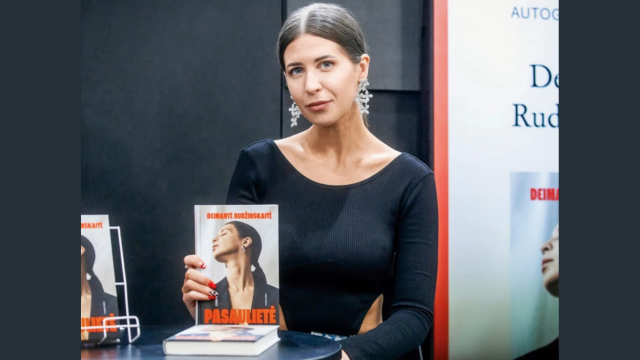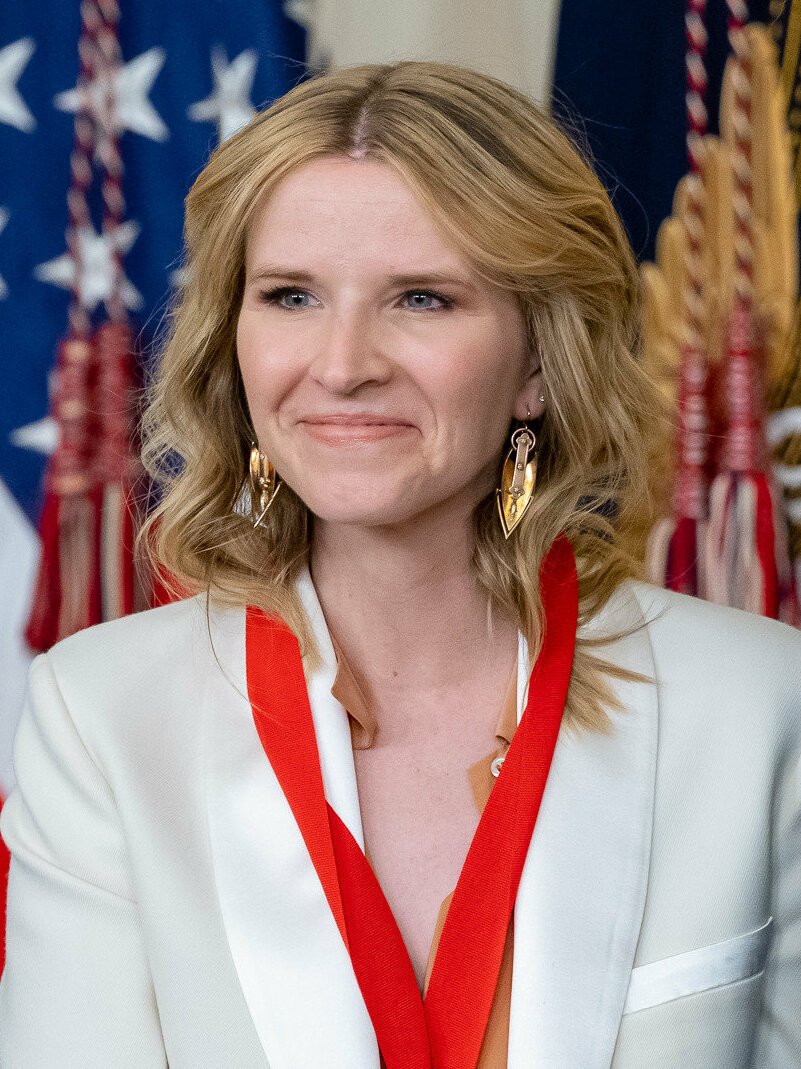While the author presents herself as an enthusiastic convert to atheism, her comments about the Jehovah’s Witnesses are largely inaccurate.
by Rosita Šorytė
Article 3 of 3. Read article 1 and article 2.

Deimantė Rudžinskaitė’s book “Pausalietė” is more interesting as a personal memoir than as a book about religion. While we can assume she faced abuse (although we lack her parents’ or relatives’ version), it is clear that the Jehovah’s Witnesses did not abuse her. Her situation reflects a common and distressing case of domestic abuse.
However, confirming Umberto Eco’s distinction between the author’s motivations and the text’s reality, Rudžinskaitė contests and resents this reading of her book. She answers a question on this point as follows: “[Q] How would you answer those who sometimes bluntly, and maybe sometimes more bluntly, ask how much of the story you tell in your book is about Jehovah’s Witnesses, and how much is simply sharing the painful experience of growing up in a possibly dysfunctional Lithuanian family in the 1990s? [A] I don’t quite understand why the question should be raised here: my story obviously combines both the backstage of the Jehovah’s Witnesses organization and the toxic relationships in my family. I know that readers are most shocked by the cruelty of the parents. Still, if it weren’t for the religious background, this book wouldn’t even exist— we know about the problem of violence, but nobody has talked about the harm of religious upbringing. If someone asked me which I found more traumatic—violence or living according to radical religious beliefs—I wouldn’t blink an eye and say: religion. Violence deforms the body, but the wounds heal quickly. Religious upbringing deforms the mind. Often, the effects are irreversible.”
In her interviews, Rudžinskaitė makes some standard anti-cult remarks. She claims that “People who join cults are often poorly educated and have serious psychological problems,” a statement few scholars of new religious movements would agree with. She cites one of her motivations for authoring the book as “to persuade those tempted to join similar religious communities not to do it.”
However, she cautions that she sees no distinction between “cults” and religions, nor between Jehovah’s Witnesses and the Roman Catholic Church. She holds the view that religion, overall, poses risks to psychological well-being, particularly in children: “It seems that not all people understand me correctly. For example, the Catholics who enjoy ‘Secular.’ They read it and are happy that their faith is much more correct than the cult I grew up in. Much to their disappointment, I have not written this book to compare which religion is better—on the contrary, I think they are all equally harmful to human development, to the formation of human opinion and critical thinking.”
She adds, “People wrote that I must have believed in the wrong God and had not found the real one. My message is that introducing any religion into child-rearing is detrimental to their development—religion is not an issue for a child, it has nothing to do with childhood.” She insists, “A child has no place in religion. My book is intended to highlight the damage that religious doctrines, and the consequences that accompany them, can do to the development and psyche of a young and vulnerable person when they are introduced from infancy.”
This reflects a conventional anti-religious and atheistic stance. Indeed, Rudžinskaitė now believes that “Life is a theatre of the absurd,” ending in death: “the ticket to this performance is a one-time ticket.” As an enthusiastic convert to atheism, she occasionally makes outrageous claims. As a photographer and stylist, she asserts, “My career is about beauty and aesthetics, which have nothing to do with spirituality.” A simple examination of how spirituality has influenced European and Lithuanian arts—from Medieval cathedrals to the Theosophical and esoteric elements in the work of Lithuania’s national painter, Mikalojus Konstantinas Čiurlionis— might convince her otherwise.

Contrasting with my perception of the book, Rudžinskaitė argues she wrote it as a warning against religion, which aligns with Eco’s theory that an author’s intentions can differ from an average reader’s reactions. Eco also introduces a third dimension: the social impact of a book, influenced by its media portrayal. The Lithuanian media presented the book as an exposé on the Jehovah’s Witnesses, leading them to send letters requesting the publication of their responses. One wonders how Rudžinskaitė was able to mobilize such a large public relations campaign supporting her book in a short time.
Beyond its content, Rudžinskaitė’s book served as a means to marginalize and stereotype the Jehovah’s Witnesses, portraying them as a “cult” and supporting the denial of the higher level of state registration in Lithuania.
Both Rudžinskaitė and the media overlooked the distinction between her mother’s religious beliefs and other contributing factors to her family’s dysfunction, which were unrelated to religion. Although Rudžinskaitė asserts that religion and dysfunctionality in her family are intertwined, an objective reading of her book suggests otherwise.
Her publisher promoted Rudžinskaitė as “the Lithuanian Westover,” alluding to Tara Westover’s 2018 memoir, “Educated” (New York: Random House), which dominated the American bestseller list for weeks and was translated into numerous languages. One might easily draw parallels between Rudžinskaitė’s upbringing, raised by a Jehovah’s Witness mother, and Westover’s early life with a Mormon father who hoarded weapons in anticipation of the Apocalypse and refused medical help or to send his daughter to school, believing that modern medicine and education were components of a Satanic conspiracy.

Yet, a crucial distinction exists. Westover explicitly states that her father did not conform to the typical profile of a member of the Church of Jesus Christ of Latter‑day Saints (LDS), commonly known as the Mormon Church. She also highlights that conspiracy theories are widespread in modern American society, extending beyond just Mormonism and religion itself.
Despite her departure from the LDS Church, Westover takes care to inform her readers that her negative family experiences were not a result of her faith, and her book should not be weaponized against Mormons: “One of the reasons I put that note there is I don’t feel like my dad is representative of the church. I knew at the time that it was going to get published in a lot of countries where people don’t know anything about Mormonism. I think most Americans probably would know (my dad) isn’t a typical Mormon, but I’m not sure most British or French people would, so I wanted to make sure that people didn’t read it and mistakenly think this is what all Mormons are like. It has been helpful because in a lot of cases, when I’m being interviewed, people will ask me about it because it’s the first thing they saw (in the book), and then I get a chance to explain. I didn’t want any of the more negative aspects of my family relationships to be pinned on the church. That was important to me.”
Had Rudžinskaitė introduced such distinctions, she could have crafted an engaging narrative on domestic abuse without demeaning a religious minority. Instead, possibly because of her anti-religious bias, she has opted to actively participate in a campaign of discrimination.

Rosita Šorytė was born on September 2, 1965 in Lithuania. In 1988, she graduated from the University of Vilnius in French Language and Literature. In 1994, she got her diploma in international relations from the Institut International d’Administration Publique in Paris.
In 1992, Rosita Šorytė joined the Ministry of Foreign Affairs of Lithuania. She has been posted to the Permanent Mission of Lithuania to UNESCO (Paris, 1994-1996), to the Permanent Mission of Lithuania to the Council of Europe (Strasbourg, 1996-1998), and was Minister Counselor at the Permanent Mission of Lithuania to the United Nations in 2014-2017, where she had already worked in 2003-2006. In 2011, she worked as the representative of the Lithuanian Chairmanship of the OSCE (Organization for Security and Cooperation in Europe) at the Office for Democratic Institutions and Human Rights (Warsaw). In 2013, she chaired the European Union Working Group on Humanitarian Aid on behalf of the Lithuanian pro tempore presidency of the European Union. As a diplomat, she specialized in disarmament, humanitarian aid and peacekeeping issues, with a special interest in the Middle East and religious persecution and discrimination in the area. She also served in elections observation missions in Bosnia and Herzegovina, Georgia, Belarus, Burundi, and Senegal.
Her personal interests, outside of international relations and humanitarian aid, include spirituality, world religions, and art. She takes a special interest in refugees escaping their countries due to religious persecution and is co-founder and President of ORLIR, the International Observatory of Religious Liberty of Refugees. She is the author, inter alia, of “Religious Persecution, Refugees, and Right of Asylum,” The Journal of CESNUR, 2(1), 2018, 78–99.
Languages (fluent): Lithuanian, English, French, Russian.



